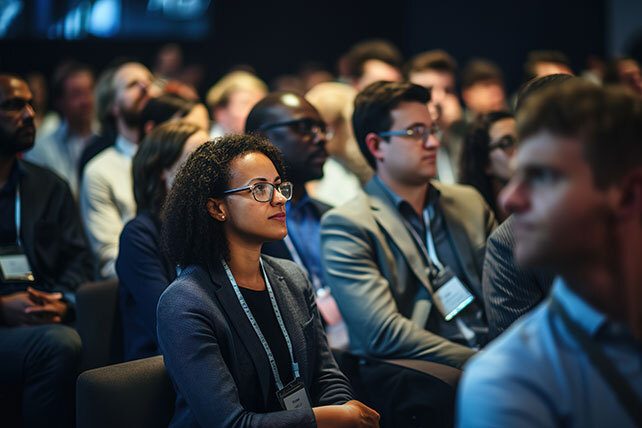Editor’s note: This article is part of forum discussing the fourth Lausanne Congress. It is not an official Lausanne Movement forum but an opportunity for Lausanne delegates to share their thoughts about the fourth Lausanne Congress, the Seoul Statement, and the future of the mission. You can read the entire series, from diverse voices around the world here.
As an anthropologist trained to analyze qualitative data from interviews and participant observation, I often refer to myself as a professor, author, and listener. I was thrilled, therefore, to learn that I was selected to volunteer at Lausanne 4 on the Listening Team.
Unlike most delegates, our team of six moved to different tables, tracks, and sessions throughout the week, taking notes as we listened to table conversations and asked about Lausanne experiences. This listening ministered to delegates and generated leads for the media team. As a qualitative researcher, I also found myself synthesizing what I heard. I’d like to offer a summary of the patterns I noticed, not as a comprehensive research study, but as a contribution to ongoing conversations about the Lausanne movement.
In what follows, I’ll begin and end with two themes of appreciation bracketed around five recommendations shared by delegates.
Connections and collaborations. L4 delegates loved to talk about the incredible people they were meeting. Placing participants with the same table groups of six diverse participants through each plenary and with another group through collaboration sessions facilitates a unique balance of depth and breadth in connections. L4 fosters a culture of openness to strangers that carries over into dining halls, shuttle buses, art tables, and hotel lobbies. I heard story after story of new encounters that will shape people’s work and ministry.
Caution about how we speak as “we.” Several disappointments during the week hinged on an ambiguous question: who is included in the “we” who speaks to and for this group? As delegates arrived to Incheon, many were confused by the email delivering the already-written Seoul Statement.
A Lausanne website describes the Seoul Statement in this way: “Informed by the listening process, this key document is expected to emerge from the Seoul-Incheon 2024 Congress. It will sound a call for collaborative action for the sake of God’s mission as an active response to the Lausanne 4 Journey.” Precedent of previous Lausanne gatherings further led many to believe that they, the delegates were the “we” who would contribute to this statement.
The question of who speaks as “we” resurfaced throughout the week. When Lausanne leaders issued an apology after Ruth Padilla DeBorst’s talk, many delegates questioned what “we” had the right to apologize for her address. The question also entered Gap Collaboration groups. In the Gap group focused on gender and sexuality, for example, people who leaned both liberal and conservative expressed surprise at finding opposing views in the same room. Others pointed out that the words “delegate” and “congress” seem to imply democratic representation, when in reality delegates are neither elected nor representative and socioeconomic challenges inhibit many of those selected from attending.
Who, then, are “we?” Should Lausanne function as an organization or a movement? What methodologies might allow documents to emerge from this “we,” and how might they be communicated with transparency? In today’s politically polarized world, speaking as “we” will require more caution than ever.
Unity that celebrates diversity. For many, that word “unity,” frequently preached from the plenary stage, became a painful reminder of its absence. True human unity is impossible without also acknowledging diversity. Majority World delegates in particular experienced several key decisions by L4 organizers as a message that unity depended upon their willingness to assimilate or keep silent.
When musicians of color were tucked behind White leaders to play back-up; when nearly every song centered Euro-American songwriters, movements, symbology, language, instrumentation, and harmonies; when plenary speakers were required to speak English; and when many breakout sessions lacked interpreters, the experienced was diminished, not only for Majority World participants but for all. There was much talk of this being the most diverse gathering in the world, but numerical diversity in the absence of inclusivity comes at the cost of those in the minority.

